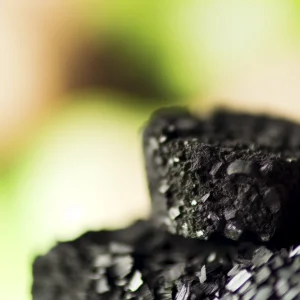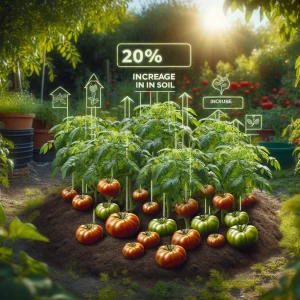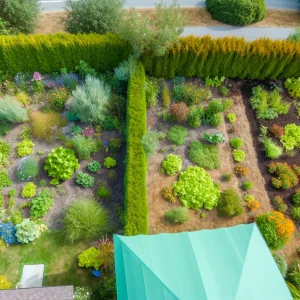In the quest for more sustainable gardening and landscaping practices, one remarkable solution has been making waves—biochar. This ancient material, re-discovered by modern science, offers enhanced soil fertility and a method to store carbon, combating climate change. Biochar can play a pivotal role, particularly in regions like British Columbia, where diverse ecosystems and variable climates pose unique challenges and opportunities for gardeners and landscapers.

What is Biochar?
Biochar is a lightweight, black residue derived from the pyrolysis of organic materials in an oxygen-limited environment. This process, essentially a form of high-temperature composting, transforms plant matter into a stable form of carbon, resistant to decomposition. The resulting product is rich in carbon and essential nutrients, which can significantly enhance soil fertility.

Benefits for Soil Fertility and Carbon Storage
Biochar’s porous nature improves soil structure by increasing water retention and aeration. It also enhances the soil’s ability to retain nutrients that would otherwise leach out, making them more available to plants. For landscapers and gardeners in British Columbia, this means healthier plants and more lush, vibrant gardens that require less watering and fewer fertilizers.
Vegetable Gardens
Biochar has been shown to increase yields significantly in vegetable gardens. For example, applying biochar to the soil in a tomato garden can improve fruit size and taste due to better nutrient availability. A typical scenario could show a 20% increase in yield after biochar application.
Flower Beds
Flower enthusiasts might notice more vivid coloration and greater bloom resilience. Adding biochar to flower beds can help sustain hydrangeas, tulips, and other popular British Columbia flowers, enhancing growth and aesthetic appeal.
Commercial Landscaping
For large-scale projects, such as commercial landscaping, biochar can reduce the overall maintenance cost by improving water use efficiency and reducing the need for chemical fertilizers. Landscapes treated with biochar support robust plant growth and are more sustainable.

Integration into Soil Management Practices
Integrating biochar into existing soil management practices or new landscaping projects in British Columbia is straightforward. It can be mixed directly into the soil or added to compost at planting time. The best times for applying biochar are during the spring or fall planting seasons when the soil is being turned and prepared for new planting or post-harvest rejuvenation.
Practical Advice for First-Time Users
For those new to biochar, starting with a small application rate, such as 10% by volume of the total soil composition, is advisable. This allows for observing improvements in soil structure and plant health without overwhelming the soil ecosystem.

Biochar is not just a soil amendment; it’s a bridge to more sustainable gardening and a step forward in our fight against climate change. We enhance our immediate environment by adopting biochar in our gardens and landscapes and contribute positively to the global ecosystem. Biochar offers a promising and effective solution for gardeners and landscapers in British Columbia looking to optimize their green spaces.